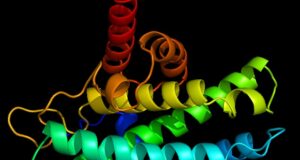Study uncovers a pathogenic subset of memory T-cells that promote tissue inflammation and highlights a potential target for treating nasal polyps and other inflammatory airway diseases.
 Study: GZMK-expressing CD8+ T cells promote recurrent airway inflammatory diseases. Image Credit: Shutterstock AI / Shutterstock.com
Study: GZMK-expressing CD8+ T cells promote recurrent airway inflammatory diseases. Image Credit: Shutterstock AI / Shutterstock.com
A study published in Nature identifies a pathogenic subset of CD8+ memory T-cells that promote airway tissue inflammation and recurrent respiratory diseases through an effector molecule.
The role of T-cells in inflammatory disease
Among various immune cells, T-cells are well-established drivers of multiple inflammatory diseases including psoriasis, Crohn’s disease, esophagitis, and multiple sclerosis. The persistence and recurrence of inflammatory diseases can be attributed to clonally expanded antigen-specific T-cells that form persistent pathogenic memory.
Chronic rhinosinusitis is an inflammatory airway disease that affects over 10% of the general population. Approximately 20-25% of patients with chronic rhinosinusitis develop recurrent nasal polyps that require repeated surgical resections. Although T-cells abundantly infiltrate nasal polyps, it remains unclear what subsets of T-cells are involved in their pathology and recurrence.
Study findings
In the current study, scientists compare T-cell repertoires in nasal polyp tissues obtained from consecutive surgeries to determine whether T-cell memory is involved in the recurrence of nasal polyps.
To this end, a subset of effector memory T-cell-like CD8+ T-cells that are persistently present in airway mucosa were identified. These cells were found to promote airway inflammation through the characteristic effector molecule Granzyme K (GZMK), which is a serine protease involved in inflammatory pathway activation.
Both loss- and gain-of-function mouse asthma models were used to explore the biological mechanisms involved in the activity of these T-cells. Herein, GZMK was found to act as complement cascade-activating protease to promote inflammatory responses.
GZMK cleaves many complement components including C2, C3, C4 and C5, which collectively contribute to the activation of the complement cascade. By targeting both C2 and C4, GZMK promotes the generation of the classical C3 convertase C4b2a, thereby leading to the generation of the pro-inflammatory C3a factor, a potent chemoattractant to C3AR-expressing type 2 effector cells including eosinophils and mast cells.
GZMK was also found to contribute to early airway recruitment of eosinophils in a C3-dependent manner. As major pathogenic effectors, eosinophils recruited in the airways could subsequently promote inflammation and tissue damage by releasing cytokines and cationic proteins.
The pro-inflammatory role of GZMK was further demonstrated through genetic ablation or pharmacological inhibition of GZMK after disease onset, which caused significant improvement in tissue pathology and restoration of lung function.
Tissue levels of GZMK can predict disease severity and comorbidities better than well-established biomarkers such as eosinophilia and tissue interleukin-5 (IL-5). Specifically, the study revealed that GZMK-expressing T-cells tend to aggregate within tertiary lymphoid structures where T helper 2 cells are also abundantly present. This finding highlights a possible link between these two pathways in terms of promoting the disease.
Eosinophils and mast cells recruited by GZMK-generated pro-inflammatory C3a factor are sources of interleukin 4 (IL-4) and IL-13, both of which promote type 2 immune cell differentiation. GZMK-expressing T-cell-secreted C3a and chemokines may also facilitate the recruitment of myeloid cells, thereby leading to activation of type 2 effectors.
High GZMK levels were identified in a subset of patients with severe nasal polyps without tissue eosinophilia and type 2 signatures, thus demonstrating the presence of eosinophil- and type 2 effector-independent pathways of GZMK-mediated airway inflammation.
Study significance
CD8+ T-cells exhibit disease-promoting and disease-regulating functions in inflammatory diseases. In fact, previous studies have reported that granzyme B (GZMB)-expressing CD8+ T-cells have induce type 1 diabetes by killing pancreatic beta cells. Comparatively, GZMB-expressing KIR+ CD8+ T-cells have been found to suppress autoimmunity by eliminating autoreactive CD4+ T-cells.
The current study is the first to report the persistence and re-engraftment of GZMK-expressing CD8+ T-cell clones in nasal polyp tissues that promote tissue inflammation and recurrent airway diseases. These findings highlight the robust role of adaptive immune memory in driving the recurrence of inflammatory diseases in human.
Previous studies have reported the presence of GZMK-expressing CD8+ T-cells in tumors and autoimmune diseases like rheumatoid arthritis and lupus nephritis. However, none of these studies have reported functional involvement of these cells in disease pathology. Considering the circulating nature of GZMK-expressing CD8+ T-cells, the targeted deletion of these cells may reduce the recurrence of nasal polyps, which otherwise remain uncurable through repeated surgical resections.
Further studies are needed to evaluate of GZMK-dependent pathways in disease progression and provide a basis for developing GZMK-targeted therapies in controlling inflammatory diseases.
Journal reference:
- Lan, F., Li, J., Miao, W., et al. (2025). GZMK-expressing CD8+ T cells promote recurrent airway inflammatory diseases. Nature. doi:10.1038/s41586-024-08395-9




